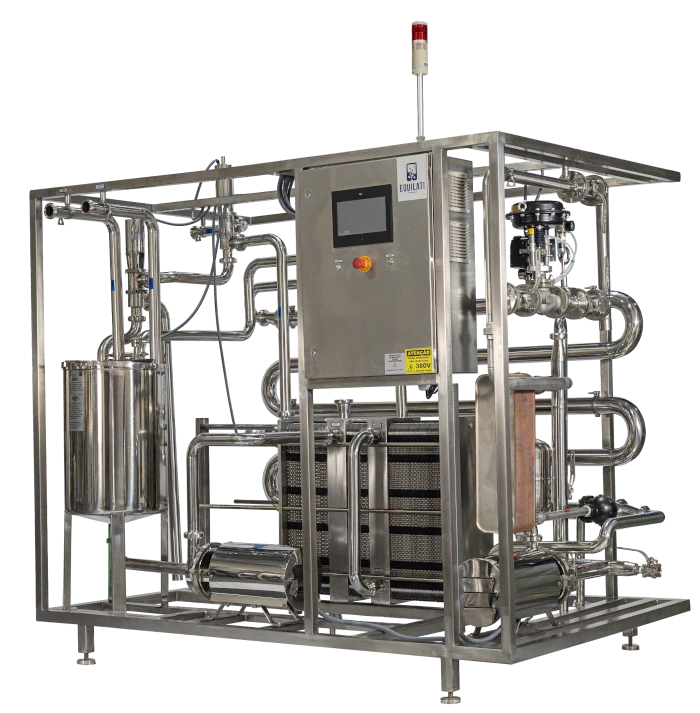Pasteurization Systems
What are pasteurization units and what are they used for?
Pasteurization units are systems composed of equipment designed to carry out the pasteurization process, which involves heating, controlling temperatures, and cooling beverages in a controlled manner. This process is essential for eliminating pathogenic microorganisms, ensuring food safety, and extending the shelf life of products.
Pasteurization is widely used in the food and beverage industry, being applied to products such as milk, juices, and beers. In addition to preventing diseases, it also preserves the sensory characteristics of food, such as flavor and aroma, and reduces waste by extending its shelf life.
Benefits of pasteurization systems
Pasteurization systems offer several benefits for the food and beverage industry. Here are some of the main ones:
- Food safety: Eliminate pathogenic microorganisms, reducing the risk of contamination.
- Extended shelf life: Prolong product preservation, allowing more efficient storage and transportation.
- Preservation of sensory characteristics: Maintain the flavor, aroma, and texture of foods without compromising quality.
- Waste reduction: Decrease losses by preventing premature product spoilage.
- Regulatory compliance: Meet sanitary standards and ensure the quality required by the market.
Pasteurization Systems for Eggs
Pasteurization systems for eggs are designed to eliminate pathogens, such as Salmonella, in whole eggs, yolks, or whites, ensuring food safety without significantly compromising their functional and sensory properties. This process is essential for products that use raw or partially cooked eggs, such as mayonnaise, sauces, and desserts.
Objective and Importance
The main objective of egg pasteurization is to eliminate pathogenic microorganisms, especially Salmonella, which can be present on the shell or inside the egg. Additionally, the process aims to preserve characteristics such as flavor, texture, emulsifying capacity, and foaming ability, which are essential for culinary and industrial applications.
Types of Pasteurization for Eggs
Pasteurization can be applied to different forms of eggs:
- Whole eggs (in shell): Processed by immersion in hot water or technologies such as radiofrequency.
- Liquid eggs (yolks, whites, or mixtures): Treated in systems similar to those used for liquid pasteurization.

